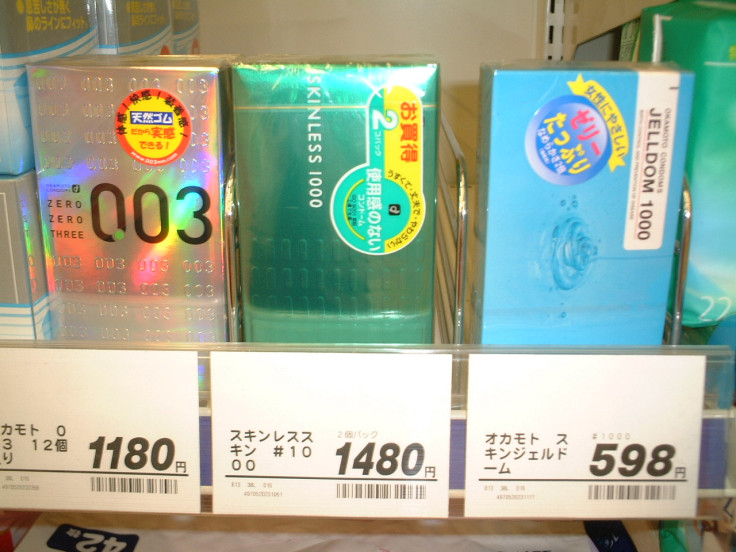Condom Cookbook Launched to Promote Safe Sex: Why are STDs Widespread in Japan?

A Japanese manga writer has created a recipe book in which food is wrapped up in condoms.
The book, Condom Meals I Want to Make for You, by Kyosuke Kagami, contains 11 dishes, including the Condom Meat Stuffing and the Condom Cookies, all of which require the use of condoms for preparation and storage.
According to NariNari.com, the book was created to promote safe sex among Japanese men, who are "some third worst condom users in the world, which leads to the spread of sexually transmitted diseases, (STDs), and unwanted pregnancies".
High Rates of Sexually Transmitted Diseases
According to a joint study by the Kyoto and Hiroshima universities, the spread of STDs, particularly HIV, is expected to rise among Japanese young people, most importantly, because of widespread misinformation available.
For example, not many Japanese young people know that STDs can be spread via oral sex.
The study cited a survey: "Sexual Health Study for Students of National Universities", which revealed that 90% of Japanese people considered condoms as a way to prevent pregnancy, but only 20% considered it as a way to prevent diseases. Only 50% used condoms with their casual partners.
"Those who had more partners used condoms less frequently, indicating their very limited perception of HIV/STDs risk," the study said. "In terms of sexual practices, only 6 to 7% used condom for oral sex, perhaps reflecting their limited knowledge regarding STDs transmission via oral sex."
Prostitution
The increase in paid sex has contributed negatively to the spread of STDs in Japan.
Although prostitution is illegal, there are dozens of brothels across the country.
Japanese Rule of 7, a blog about life in Japan, explained that for Japanese men it "is possible to get sex almost anywhere, at any time, for little more than the price of a decent lunch.
"Anyone who's been in Japan for even a short while has seen the rows of shops offering all the usual services."
What at first might seem normal shops are, in reality, places where men go to have sex with prostitutes.
The most widespread brothels are called soaplands; where clients are covered in soap and lubricant before having intercourse. Soaplands were created during the 1950s, when Japan declared prostitution illegal, as places where men went to be washed by women.
Condoms in Japan
Many expats in Japan do not trust the condoms as they are prone to breakages, preferring to use ones they have bought themselves from their home countries.
It's no surprise that they break as the world's thinnest condom, Sagami Original 0.01, was invented there and is a popular choice. The condom is only 0.01 millimetres thick, that's one sixth the width of a human hair.
It is a well-known fact that most Japanese men do not like to wear condoms and very rarely carry them and they also try to convince girls that it's more fun without them.
As Japanese men are not keen to use them, most of the condom marketing is done towards women, with the packaging being overtly feminine and the products being located near pregnancy tests and baby supplies.

HIV and AIDS
Unlike most developed countries, cases of HIV in Japan have been rapidly increasing for a number of years.
According to a report published to UNAids in March of this year, by the Aids Surveillance Committee, Ministry of Health, Labour and Welfare in Japan, instances of HIV and Aids have been on the increase since the first reported case in 1985, where HIV-tainted blood was used in the treatment of haemophiliacs.
At the end of 2012, there were a total of 14,706 cases of HIV infection and 6,719 AIDS cases were reported, with sexual intercourse being the major route of spreading the disease.
Homosexual contact made up for 55.2% of the reported cases of HIV and 36.2% of AIDS. 70% of all the new cases were young people in their twenties or thirties.
A lot of people are blaming Japan's overall lack of knowledge for the rise in the deadly virus, saying there is little information available to them and not enough promotion by the government.
Even in schools, the focus of sex education is on how to make a baby, and not any of the other things that could happen.
"I sat in on the school sex education classes once, as I was intrigued at what they were teaching them [Japanese students]. It was all about how to get pregnant nothing more. No condoms. No STD's. Nothing," said Eleanor Treaker, an American expat working in a Japanese high school.
A 44-year-old Tokyo resident called Isao, found out he had AIDS in 2013 after years on the gay scene, having anonymous sex with strangers and occasionally paying for the service.
Speaking to The Japan Times, Isao admitted that he had always used condom for anal sex, but there were a few times when his sexual partner had removed the condom without telling him.
Isao also believes that Japan's lack of awareness on the subject and the fact that they like to ignore problems and keep them at arm's length, is to blame.
"Japanese people in general have a low level of awareness about HIV. They don't have a strong sense that there is danger and that they must be very careful," he said.
"In Japanese, we have a proverb: Taigan no kaji (The fire across the river). This means that even though there is serious danger and we are able see it, the problem is over there, so the people on this side of the river are safe. Japanese people still haven't escaped from this mentality."
© Copyright IBTimes 2025. All rights reserved.




















